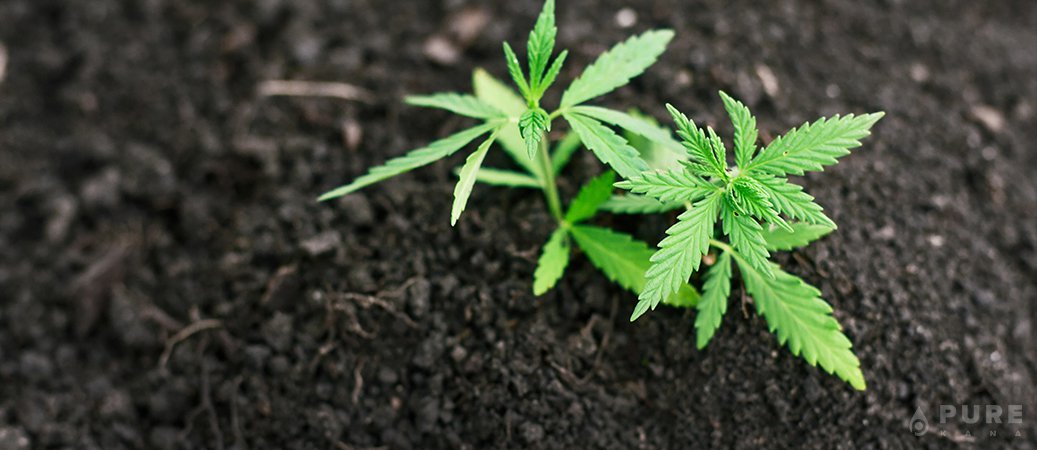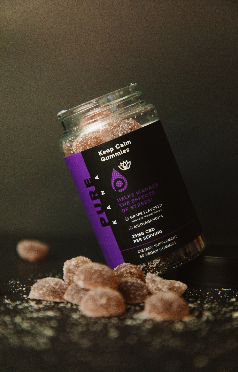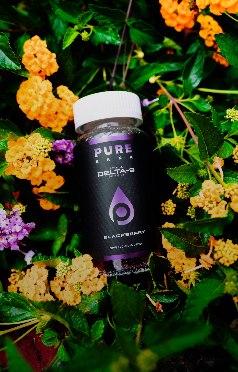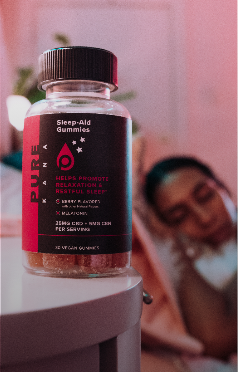Compared to most other supplements, CBD has a larger price tag. For newcomers, it might seem unreasonable that companies are charging so much for what’s now an everyday product. However, there are some pretty good reasons why CBD is more expensive than other items.
This guide covers nine possible reasons why CBD is expensive. It can vary between brands, but customers typically pay more for high-quality goods.
Check out the full range of PureKana products to discover what reasonably priced, top-shelf CBD looks like – and benefit from our free US shipping, too.
1. It’s Still a Pretty New Product
At the end of the day, CBD is relatively new. It has only blown up within the last decade, making it a new hand in the broader supplements industry. As a result, part of the price is the novelty.
Like most products that hit the market, there has been a small degree of inflation.
The US government legalized hemp production in 2018, so the legitimate market has only been fully operational on US soil for around five years. Part of the costs relate to manufacturers streamlining the process, particularly paying farmers while they figure out the best way to grow profitable hemp.
2. Hemp Is Difficult to Grow
Speaking of growing hemp, the costs for doing so can be high. If you know anything about hemp, you might be questioning this statement. After all, it’s a hardy crop that uses little water.

However, growing quality hemp is more complicated. For starters, most CBD brands worth their salt want to use organic hemp; when the plants are intended for human consumption, it’s best to avoid chemical growth enhancers. Growing organically can be more expensive since the cultivator must invest in other methods of pest control.
Furthermore, lots of high-quality hemp is handpicked and dried, which means higher labor costs.
Finally, it’s important to consider legal fees. Despite it being legal to cultivate hemp in the USA, most states tightly control its cultivation. Farmers must undergo government inspections and pay licensing fees, driving up the cost even further.
3. CBD is in High Demand
Sometimes it’s a simple case of supply and demand. The popularity of CBD means companies can charge the prices they do.
In 2020, the global CBD market was estimated at $2.8 billion, according to Grandview Research. It has grown since then and remains on an upward trend.
As long as CBD remains remarkably popular, prices are likely to remain high.
4. Lab Testing and Certification: Extra Fees
There are some things in the manufacturing process that mean CBD brands incur extra fees. We have already mentioned the fees that come with farming hemp, but there are further steps brands must take.
Reputable brands always publish lab reports for their products. They must send away samples of their products frequently to an independent laboratory, which tests the sample for toxins and heavy metals. They also verify the cannabinoid content.

Such tests can be expensive, and are incurred by the brand. Part of this cost is inevitably passed onto the consumer.
It’s worth it, though, to prove the quality and reputability of the product. Only the best CBD brands take the extra steps to verify their products. You can see examples of lab reports here on the PureKana website.
In some cases, brands also want to get their products certified by independent bodies. For example, some CBD products come with organic certification, or they are certified Kosher or vegan. There may be fees associated with these checks, which again drives up the cost.
5. Difficult to Distribute
CBD regulation varies from state to state. There is very little cohesion, which has led to distribution giants like Amazon banning the sale of CBD on their sites. As a result, the onus is on the manufacturer to pay enormous shipping fees.
Smaller brands usually cannot afford this, so they price their CBD products in a way that incorporates shipping costs. For more prominent brands, this can be cheaper.
6. Not All Products Are Created Equal
When you’re shopping for CBD, you’ll likely notice a price disparity across different brands. In the CBD market, it’s true that you get what you pay for.
Products that cost more typically have a higher price tag due to:
- Better research behind the product, e.g., companies hiring trained pharmacists
- Higher quality hemp
- More frequent and more accurate lab testing
- More effective and safer extraction methods
These are just a few factors that can contribute to cost. As the CBD market becomes increasingly saturated, manufacturers must go above and beyond to prove their worth and stand out from the crowd. Producing better quality products must come at some financial cost.
7. Extraction Can Be a Difficult Process
There are multiple methods for extracting CBD from hemp. Some, such as olive oil extraction, do not really work on an industrial scale.
Most brands use either solvent extraction or CO2 extraction. Both methods have their pros and cons.
Supercritical CO2 extraction is usually regarded as the best method available because it’s efficient, produces high yields, and it’s safe. Carbon dioxide is safe for human consumption, so there is no risk of contaminants in the final oil.
However, the equipment required for CO2 extraction is high-tech and requires operation by a trained individual. Manufacturers must purchase the machines and employ capable technicians to use them, driving up the costs.
Arguably, CO2 extraction is worth it for peace of mind – both with regards to product safety and cannabinoid quality.
8. Major Investment Required
Making CBD oil is a long and challenging process. Start-ups have a lot of initial costs, including dealing with farmers or even purchasing farmland. Then there is harvesting equipment, drying equipment, warehouses for storage, and more. As mentioned above, extraction tools are also costly.
All of this adds up, not to mention the labor costs for skilled employees.
New CBD companies may therefore sell their CBD oils at a higher price in an attempt to recover some of the start-up costs. This price may drop over time, but recurring costs like licensing fees can keep the cost relatively high.
9. Pricing Is Often Misunderstood
Sometimes, consumers misunderstand the cost of various CBD products. Depending on the brand, CBD products may be listed per milligram or by a concentration of cannabidiol. This can be confusing – a higher percentage does not necessarily mean more CBD.
It’s best to view all CBD on a price-per-milligram basis. For example, our 300mg tincture is priced at $54, which is $0.18 per mg of CBD. However, our 1000mg tincture costs $139, which is $0.14 per mg. As a result, the latter is better value for money.
Being aware of factors such as this might help you make smarter CBD purchasing decisions, particularly if you use high amounts of CBD at one time.
Final Thoughts: Is It Worth It to Buy Cheaper CBD?
There are cheaper CBD options on the market, but it’s often best to avoid them. It can wind up being more expensive and a waste of money because they don’t provide the same effects. It’s better to splash out on a high-quality product in the first place than buy a poor-quality one and be forced to buy the better one on top of that.
A small investment in CBD is an investment in your health and wellbeing, and sometimes it’s worth it to go the extra mile and treat yourself.












 https://premiumjane.com/
https://premiumjane.com/